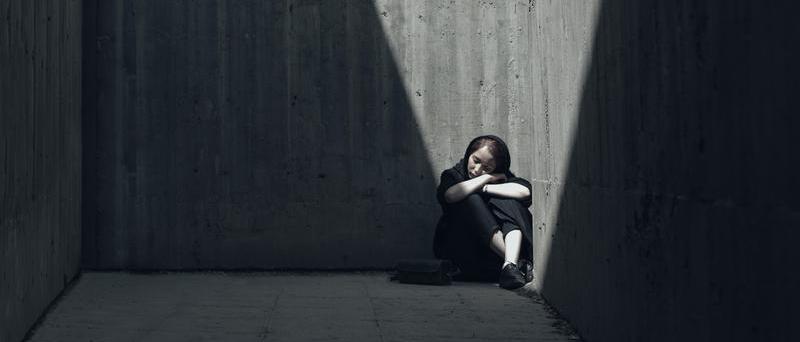by Gianni Washington
April 8, 2022
Gianni Washington is an Associate Fiction Editor with West Trade Review. She has a Ph.D. in Creative Writing from The University of Surrey, and her work has been published in The Fat City Review online, LitroNY.com, and in the horror anthology Brief Grislys. She is also featured on episodes 8 (Dec. 2020) and 10 (Feb. 2021) of The Great American Folk Show reading from her short story, “Homunculus.”
Heartbroke by Chelsea Bieker; Catapult; 288 pages; $26
Inheritance lurks at the center of Chelsea Bieker’s story collection, Heartbroke. Pain, passed down from parent to child. A grisly mine wrapped up like a gift, exploding as the child makes their unsteady way into adulthood. Blood is everything—the roadmap superglued to every character’s skin. The decisions of every parent, and the culture that molded them, determine the lives of their children. Just when you think they might escape the fraught maze they’ve been born into, they willingly pass the exit by. Because who they are is all they will ever be, or so they have learned to believe. The true Manifest Destiny.
The characters of Heartbroke are all tied to California’s Central Valley. Many of them are quite similar, even down to the abuses they suffer: three different women from two different tales are thrown violently into garbage bins by their abusive partners. There are more alcoholics than you can shake a stick at, and everyone seems capable of horrific cruelty. What may at first feel absurdly avoidable becomes a wrought iron birdcage with no door when you step back to consider the entirety of each character’s world.
Bieker’s collection focuses on the knock-on effect our upbringing has on us and illustrates that one can only evade that last domino if given multiple chances to believe in the possibility of evasion. “Fact of Body” follows Bobby, a 15 year-old boy who lives out of a car with his mother, who guilts him into working alongside her as a prostitute. The two also sell dreamcatchers by the highway. Bobby’s mother is erratic and has had dreams of falling in love with a documentary filmmaker; Bobby’s only dream is to go to school and have some semblance of a normal life. He didn’t want to start working at Seashell’s, the bar where his mother finds her customers, but she guilts him into joining her because she needs money for her uppers and downers. When a couple of college students come around, one looking for someone to be in his documentary about a nuclear waste spill that displaced local residents, Bobby’s mother believes her prayers have been answered and that they will finally live the life they are meant to. The filmmaker’s girlfriend is a journalism student who, unlike her boyfriend, sees the truth of their situation and tries to convince Bobby to let her help him. Bobby tells her that he doesn’t need her help. Though everything in him is screaming for a way out, and he is eventually handed an unlikely chance at escape, Bobby ultimately retreats back to the safety of the life he has always known. He cannot leave “[his] mother, [his] only.”
Though there are mothers in this collection who succeed in assassinating their own characters, Bieker also shows the mother who puts her own desires first in all of her complex glory. The mother in “The Bare of Our Chests” manipulates her son into committing a criminal act that she is ultimately blamed for by the public, then goes on the lam. But not only is this act the result of something even more heinous that has happened to one of her children, but one might even argue that the mother fleeing and leaving her children to be cared for by other relatives leads to better lives for them both. Some mothers receive their comeuppance; others get what they perceive as opportunities for redemption after having lost their children either to the courts or to death.
Some of the most striking stories in this collection are those connected by the character Pretty. They act as a matryoshka doll, unlocking new layers of someone who is first presented as an objective villain. In the story “Keep Her Down,” Baby and Jan have lived together for years, caring for Jan’s elderly sister Golda, which Baby has come to view as a second chance at showing her competence as a caretaker. Baby lost the daughter she had with Pretty because she was deemed unfit due to her alcoholism and neglect. Though Baby and Jan initially bonded over their shared mistreatment by Pretty, Jan is regularly cruel to Baby, reinforcing Baby’s low view of herself. Throughout the story, Baby returns to drinking and thoughts of her abusive ex as though they are life rafts, even when, like Bobby, she is given a chance to rebuild her life. After reminiscing about her love for him, Jan tells Baby that she doesn’t think Pretty was “equipped to love women.” Rather than unpack the comment, Baby pushes it away and it isn’t addressed again.
In a later story, “Cadillac Flats,” we meet a teenaged Pretty—budding homosexual and son of a disturbed war veteran. The Pretty of this time fantasizes about saving his mother from his father’s abuse, though he also respects and tries his best to please his father. Pretty catches a glimpse of the life he could have when he meets a boy his age who he starts to feel the stirrings of love for. But the story ends with the rage at being denied the right to be fully himself—rage that Pretty will later unleash on his wives—taking up residence in his heart. The last of the Pretty trilogy is the eponymous “Heartbroke,” which is a collection of letters to Pretty from his mother. In “Cadillac Flats,” Pretty learns of the two older siblings he would have had if not for a tragic accident. When he asks his mother about them, she refuses to speak of it because her husband has forbidden it; he thinks she should be over it by now. In “Heartbroke,” Pretty’s mother finally reveals as much as her grief will allow about her lost children, and the love she felt incapable of showing Pretty when he was young. We learn that Pretty internalized more of his father’s harmful beliefs than his mother hoped he would. They both wanted to save each other, but neither knew until it was too late.
While at first, Heartbroke may hit the mind like a broken record—revisiting familiar tragedies through different characters who all occupy the same small patch of Earth—it is actually a study in the ways that small differences in nature and nurture can affect the way we view our place in this world. Those differences are what separate those who see the glass as half-full from those who see a glass full of poison. But if you look closely, here and there, Bieker reveals the hiding place of the antidote.
__________________________________________________________________________________________________________________________________________________________________________
__________________________________________________________________________________________________________________________________________________________________________
__________________________________________________________________________________________________________________________________________________________________________
__________________________________________________________________________________________________________________________________________________________________________
__________________________________________________________________________________________________________________________________________________________________________
"When Suffering is a Warm Blanket: Generational Burdens in Chelsea Bieker’s Heartbroke”
FICTION REVIEW
Image Ali Abiyar on Unsplash
©2022 West Trade Review
Stay Connected to Our Literary Community. Subscribe to Our Newsletter




